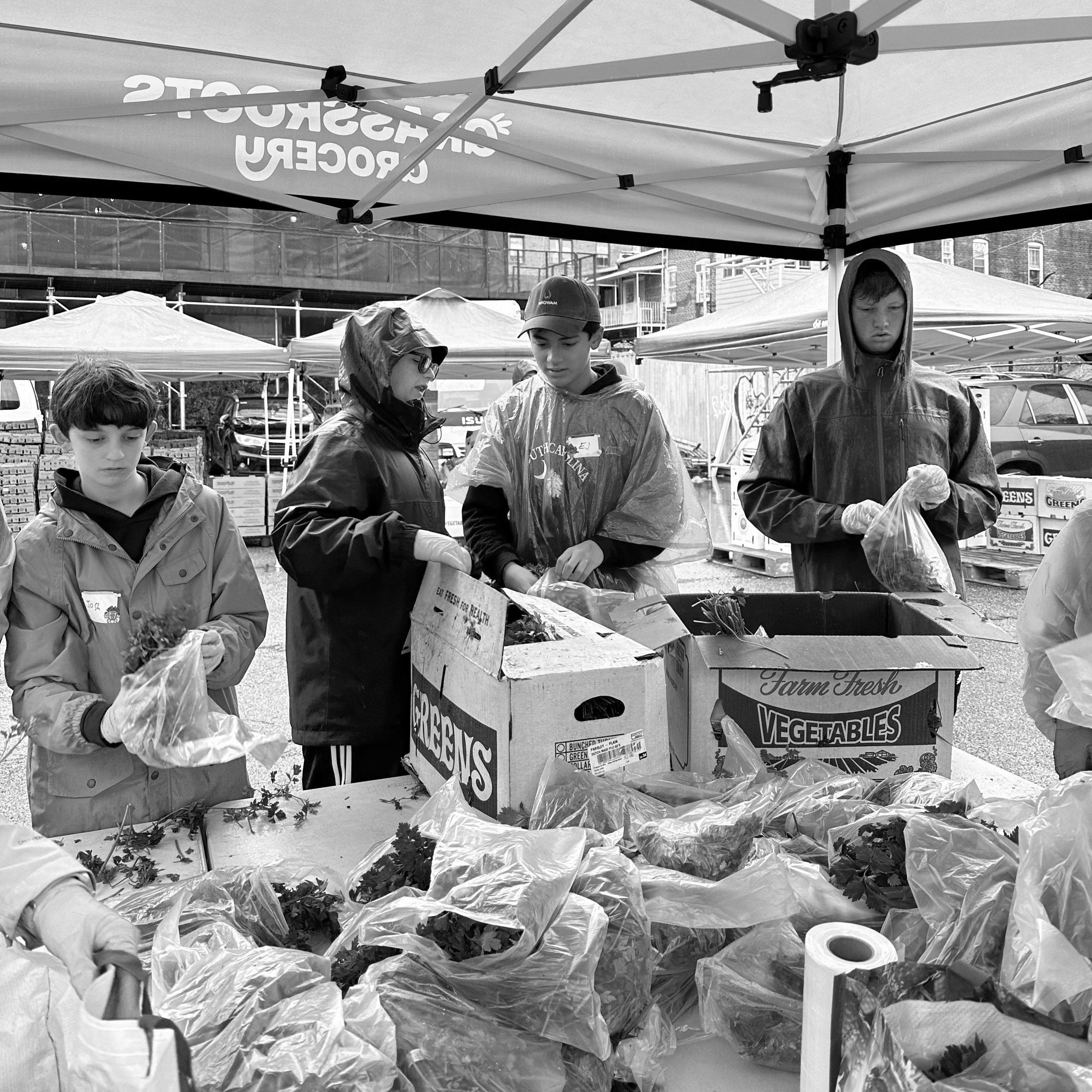Browning’s Social Impact Commitment
Browning’s most recent collaboration with Grassroots Grocery collected over 12,000 pounds of produce.
Our school recently renewed its partnership with Grassroots Grocery, a Bronx nonprofit organization dedicated to getting fresh food to those in need. Since 2021, Browning students, families, alumni, faculty and staff have been working alongside Grassroots leaders and other volunteers in an effort. Through the leadership of our Director of Equitable Practices and Social Impact, Naledi Semela, there are four Saturdays per year that the Browning community is officially invited to join in this good work with Grassroots Grocery. (We are, of course, free to participate outside the “official schedule” for Browning, too!)
Formerly called “service learning” at Browning, our reimagined social impact program goes beyond the immediate educational goal of learning about the target cause and organizing assistance. Social impact means that our students are not merely training to one day make a difference, but that they see themselves as agents of change in the present tense. In accordance with our mission of meaningful contribution and our core value of purpose, Browning targets volunteering efforts that have a direct and lasting impact, and where our students are directly responsible for these contributions.
Additionally, in keeping with our practice of prioritizing relationships as a key mechanism for learning, the program is designed to help our students see themselves as members of a larger community, with something to give and much to receive from interacting with others beyond the Red Doors. This reciprocal understanding of impact fuels ongoing engagement and student-led efforts in and outside of school.
One of the fundamental purposes of Browning is the importance of connection—with ideas, with commitments, and most especially with people. With our phones and laptops, we can get inured to the torrent of available information about very real human pain and need, we can curate an increasingly narrow and insular online community, and we can make a wholesale choice to substitute screens for in-person encounter. Even in person, it is far too easy for schools' service learning initiatives to devolve into shallow exercises in résumé burnishing, or "charity tourism" that stereotypes or dehumanizes members of an underresourced community.
“This is why our social impact programming is built on long-term partnerships, emphasizes the importance of consistent activity, and is integrated with our core values, particularly those of curiosity, dignity, and purpose.”
A successful social impact program, then, must be clear in its aims and conscientious in its administration. On their own, each activity we attempt can help promote meaningful practical outcomes: Grassroots Grocery gets food to those in need, Daniel’s Music Foundation provides programs for people with disabilities, Manhattan Childrens Center supports children with autism spectrum disorder, and so forth. These positive results are a significant motivation for our partnership with these organizations—they are doing real good in the world, and that good can be enabled by volunteer support. But we also participate because Browning wants to be a community whose members have an abiding interest in interpersonal connection, who see great human possibility in recognizing the lived experience of folks in different communities, and who are eager to work in and learn from spaces beyond East 62nd Street. This is why our social impact programming is built on long-term partnerships, emphasizes the importance of consistent (rather than decontextualized or “one-off”) activity, and is integrated with our core values, particularly those of curiosity, dignity, and purpose. When groups of boys and chaperones come together at social impact sites, we are certainly trying to lend a hand. At the same time, we are also trying to give an example of how to build a meaningful life, one informed by shared effort toward a common goal, humble and open-minded encounters with a broader world, and belief in the human potential for connection and learning through purposeful work. In a world which too often seems intent on privileging superficiality and sensation, Browning wants to demonstrate the virtues of dedicated and curious engagement in the company of others.
If we want to make sure our education is not just another curated and insulated experience, and have our boys live our mission by discovering the best of themselves through finding the best in others, a strong social impact program is a good place to begin.

